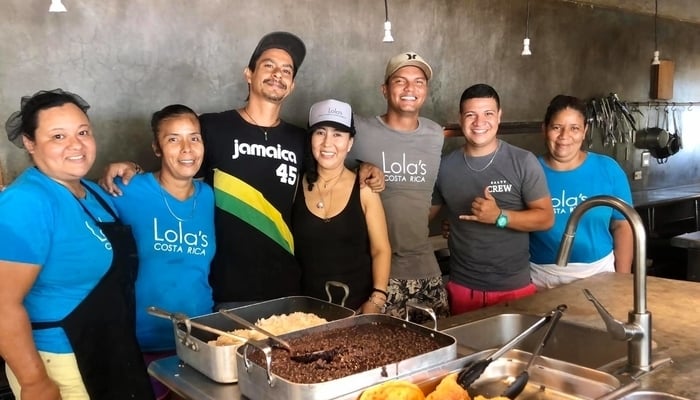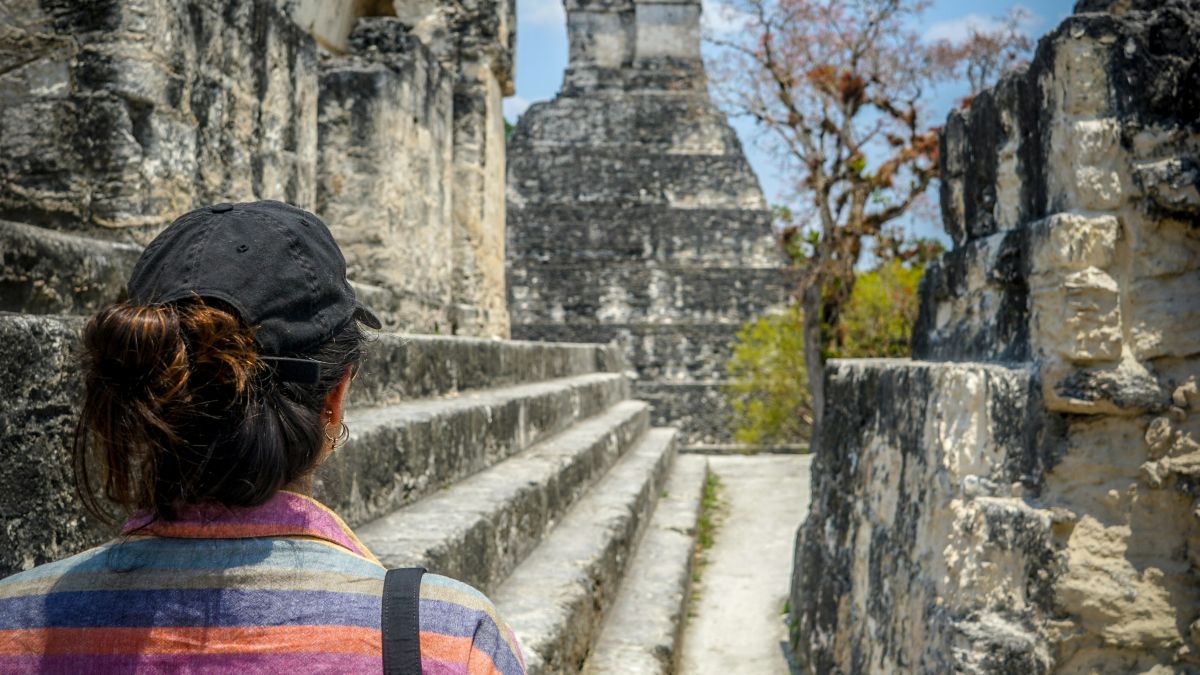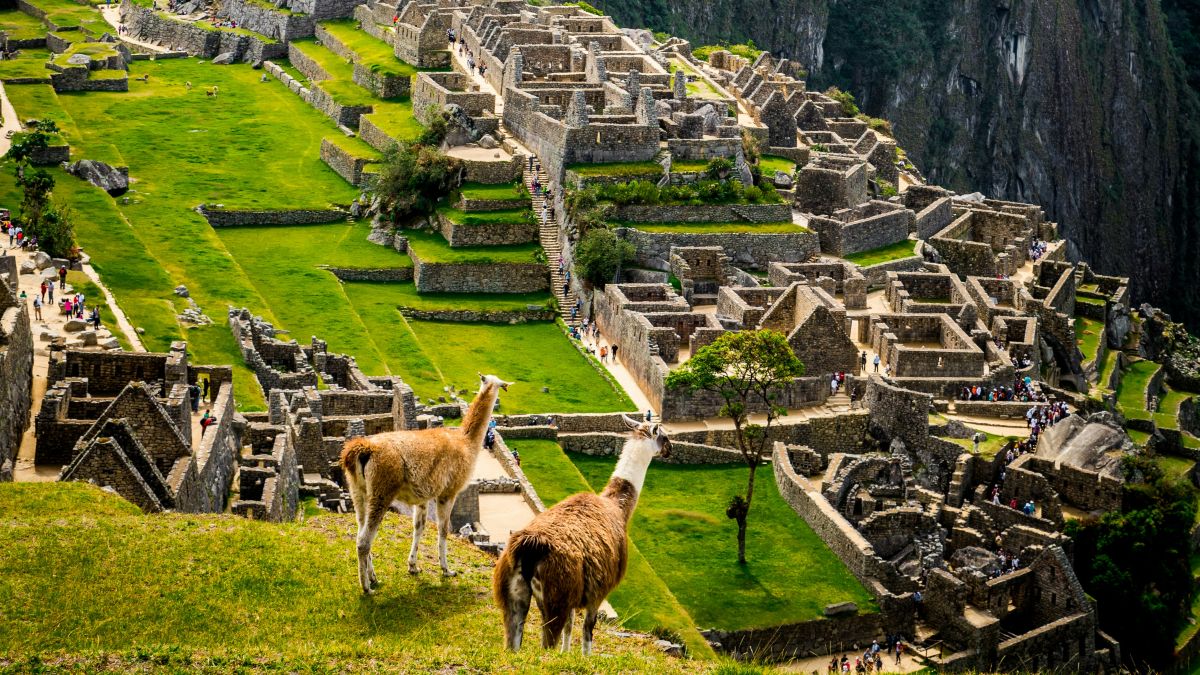An interview with Christi Bettinsoli from Lola’s restaurant on Playa Avellana, south of Tamarindo, Costa Rica. Bettinsoli talks about the impact the economic crisis has had on her restaurant and local community.
Even though tourism – to some extent – is back in Costa Rica, the economic devastation of beach and rural communities is palpable. We hear story after story of mass unemployment, food banks, and despair on both coasts. This weekend we spoke to Christi Bettinsoli from Lola’s Restaurant on Playa Avellana in Guanacaste.
Since the collapse of tourism put Playa Avellana out of work in March, Lola’s has been on the front line.
They’ve been feeding people daily with their food bank and pushing for change in current policy over the handling of the crisis. Bettinsoli feels that beach/tourist communities have been abandoned since March.
Below is the transcript to our chat. We hope it offers some insight into what’s going on in beach and rural communities that rely on tourism. Lola’s and the Playa Avellana community are by no means unique in Costa Rica right now.
Centralamerica.com (CA): Hey Christi, how are things? I know we’ve been trying to chat for a while now.
Christi Bettinsoli (CB): “Great to finally catch up! We’re still working hard to try and help our community, support our staff and save our business. It has been extremely difficult, but also rewarding to know that we are making a difference. Funds are very low and slow coming in from donations. Don and I have completely exhausted our personal savings. We’re now looking at possible investors, or selling land to survive and continue our efforts.”
CA: Give us some background on Lola’s. Most people in Costa Rica have heard of you – you’re famous. But tell us how you started.
CB: “I’m originally from Los Gatos, California, near Silicon Valley. My parents retired, relocated to Tamarindo, and bought a beautiful hotel which I was lucky to visit for many years.
“My husband, Dr. Donatus van Akkeren is Dutch, born and raised in Leiden. He finished medical school there and did his residency in Curaçao, where he fell in love with the tropical life. Once there, he realized he didn’t want to be a doctor, and went back to modelling, something he’d dabbled in while studying. He became rather successful and found himself living in Italy, Japan, France, and New York City for the next two decades.
“While living in New York, he came to visit a friend in Tamarindo in 1997. That’s where he met me while I was staying at my mom and dad’s hotel. We started dating, built and opened Lola’s in 1998, had two daughters, and have been together ever since.”
CA: Talk a little about how Lola’s developed. Your vision for the place and what you’ve done with it over the years.
CB: “Since 1998, we built up Lola’s from two tables to forty, with seating now for over 300 guests. Over the years, we’ve focused on improving sustainable practices. We use organic produce and free-range organic chicken and eggs. We recycle, compost (or feed our pigs!), and convert fryer oil to biodiesel. At Lola’s we support the local community. We’ve worked with the police, schools, children’s advocacy groups, lifeguards, beach cleanup programs, animal clinics, local charities, and environmental projects.
“We also sponsor our staff to enroll in lifeguard training and have subsequently paid to have eight of our waiters certified. They’ve rescued hundreds of people from injury and have saved the lives of dozens of potential drowning victims.
“Lola’s has its own wastewater treatment facility, supplying clean water for our reforestation projects and gardens. We have planted tens of thousands of trees between our property here and our fincas in Pinilla and Marbella. We have eliminated all plastic cups, bottles, carry-out containers and straws. I would have to do some research, but I’m quite positive we were the first restaurant in Costa Rica to switch to paper straws.
“We’ve been named in several ”Top 10” lists over the years. Everything from “best beach bar” to best Latin American restaurant. Lola’s hosts hundreds of events, including school fundraisers and surf competitions for the disabled. We’ve held many national and local surf contests as well. It’s been a pleasure to have Lola’s as a community gathering place and center for our youth.”
CA: I have to say I’m a fan. I’ve hung out at Lola’s a few times over the years and I always wonder why I don’t spend more time in Avellana. Thanks for the background. Let’s talk about now. Tell me about 2020 and the crisis.
CB: “When Costa Rica closed its borders on March 18, we knew we were in trouble. We had several events booked and paid for, and hundreds of reservations for the upcoming months. Tourists panicked and were scrambling to get out of the country. We started refunding deposits immediately.
“By March 21, the beaches were closed and our neighbors started coming to us for help. We stayed open through Sunday, March 22. We are always closed on Mondays anyway, so on Tuesday, March 24, we closed again to the public and started a community kitchen. We served around 60 free lunches that first day and were up to 250 lunches by the first weekend.
“On March 24, we “officially” closed and properly started the Lola’s Free Lunch Program.”
CA: How has your closure affected both Lola’s and the wider Avellanas community?
CB: “In a normal year, between March and August, we would have generated well over $700,000 in sales. Approximately 15% of that would have been our pre-tax profit. This is money we normally use to sustain the business, cover our losses, and pay staff in October, November, and December when tourism slows dramatically. The rest would have gone to employees and local vendors. This is a massive loss for our community and extended financially-dependent businesses.
“Everyone from local organic farmers to the fishermen who sold mainly to us are out of a large percentage of their income.
“On top of our loss of profits, we have personally spent over $50,000 supporting our staff. They have no opportunity to earn money in an area completely dependent on tourism. And to add insult to injury, almost none of them have received a single bono proteger.”
CA: Tell our readers quickly what the bono proteger is.
CB: “It’s the money the government promised to pay people who’d lost their jobs when they shut down the country in March. It wasn’t much to begin with, but it would have been something. Here in Avenalla, and elsewhere in Costa Rica, a lot of people received nothing.
“For example, we have 32 staff at Lola’s. After five months of this crisis, they should have received 160 payments of ¢125,000 (US$212) combined. That’s around ¢20,000,000 (US$34,000). They’ve received only six payments (¢750,000 or $1,272) in total.
“The majority of our staff received nothing and so, with no help in sight, we’ve supported every employee by creating a few hours for them to work. Either that, or we give them money every Sunday to make sure they can survive.
“We are over $150,000 in the hole, and the government has done NOTHING to help. We requested relief from paying the municipal permits, but they refused even that.”
CA: What about the beaches opening again? Has that helped?
CB: “On May 18 the beaches opened up again for limited hours (5:00 AM to 8:00 AM). We hoped to get some clients joining us for breakfast and started seeing a minuscule amount of income trickling in. That didn’t last though, because two weeks later the government allowed neighboring beaches located in parks (Nosara, Langosta and Grande) to open all day. Nobody came to Avellana, and once again we had NO opportunity to make any money.
“Since Playa Avenallas opened last week for longer hours (5:00 AM to 2:30 PM.), we’ve extended our business hours to serve lunch. But we’re still losing money daily.
“We’re offering discounts and specials to attract national tourists and locals, but there’s little hope with the driving restrictions and no foreign tourists. Most locals here are in the same situation and don’t have expendable income to dine out or travel to the beach.”
CA: And the wider community? Have things changed?
CA: How have you been surviving? Is anyone helping at all?
CB: “We’ve been reaching out to friends, family, and longtime clients for donations. Also, we have a constant social media campaign to raise funds.
“Organizations like ACOS, CEPIA, and Help Your Paradise (a local Avellana group set up through the local chamber of commerce) have donated food baskets to our staff.
“The Greater Tamarindo Food Bank, Belca, and some smaller farmers have donated food a few times, and that is the only outside help we’ve received.”
CA: Sum up the situation today.
CB: “Desperate. Critical. Basically, we’re closed with our staff suspended. We’re still operating as a community kitchen. Our employees rotate shifts to “work” for the public donations. All proceeds from any sales go back to support the free lunches, but it’s not enough to cover even those expenses.
“We’ve signed up all employees to receive food baskets, and they’re all offered a free lunch daily. We still try to give them a supplement if extra donations come in, but everybody is just barely surviving right now.”
CA: In an ideal world (apart from there being no COVID), what do you need?
CB: “We need the government to pay the bono proteger, at the very least. It’s a disgrace they haven’t done that while I see public workers protesting salary cuts in San Jose. People up here are getting nothing.
“Another thing we need in the immediate term are donations. We need food and money to keep the free lunches going.
“I saw your article last week about tourism, asking to simplify things. We need tourism to return, and that includes the USA. At Lola’s we agree. If everybody needs a negative test before entering, who cares what country is on their passport?
“[Some] tourists can come back, but they’re not back. There is no tourism. Costa Ricans do not and cannot support even ten percent of the tourism we’re used to seeing. The majority of Ticos don’t have the money to spend on national travel right now. Those that can afford it are hampered by whatever driving restrictions they make up on any given week.”
CA: Do you have anything positive to say? Any goals for the immediate future?
CB: “Haha! I know this sounds like a rant. But of course there are positives. It’s been a challenging, frustrating, and infuriating time, for sure. But we’re still hopeful to get back to serving our clients. We’re still grateful to live on such a beautiful beach in a such a beautiful country.
“Our main goal now is to squeak out the most basic survival for as many as possible for as long as possible. We’ll keep things operating as close to usual to preserve some semblance of normalcy for our community and staff. I think mentally it means a lot to have a place to come and work, even for a few hours, to help others and to socialize. It is good for our sanity and morale.
“We know that the kindness of Costa Rica FAR outweighs anything negative and we’re fortunate to be able to serve our community. We appreciate all the support and love that we receive from our local community, friends, and family. Those friends and family members include our amazing clients and, of course, our staff.”
CA: Thanks so much for the chat, Christi. As I said, we’ve wanted to chat to you for a while. We look at the situation in beach towns and tourist communities in Costa Rica and see how you guys are up front and center in helping people. It’s been great to get some insight from you.
CB: “No worries! Thanks for the time. Hope to see you up here on the beach soon when better times return.”




